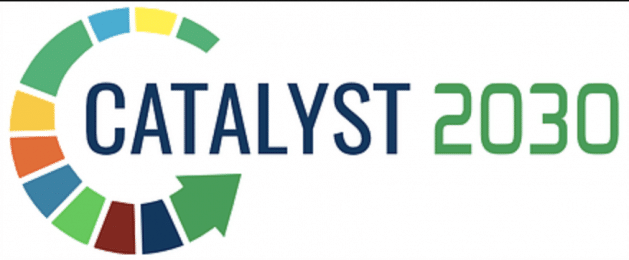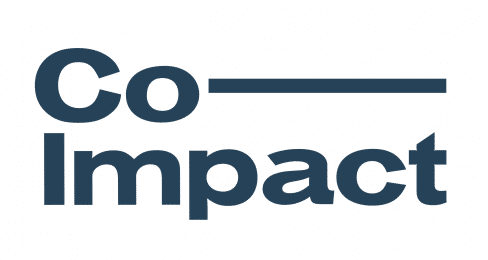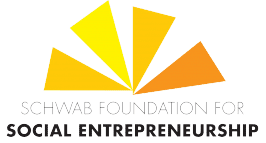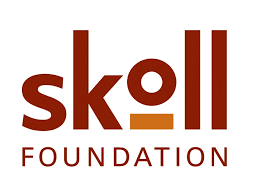Systems Change Leaders Surveyed
Ashoka Staff Contacts
Please contact Manmeet Mehta for inquires within the United States.
Please contact Odin Muehlenbein for inquires within Europe.
Manmeet Mehta
Director, Program Operations and Impact
Manmeet Mehta is the Director of Program Operations and Impact for Ashoka U.S. She has more than 15 years of experience in the corporate and social sector, working on issues of improving access to philanthropic capital, strategy consulting, strategic philanthropy, and grantmaking. She founded GlobalGiving’s online crowdfunding program, “The GlobalGiving Accelerator" in 2007. The Accelerator was the first globally accessible mechanism for social entrepreneurs and nonprofits to access funding from the $270 billion US philanthropic market. She has worked with funders like USAID, The Rockefeller Foundation, and The Bill & Melinda Gates Foundation on developing a systems-driven strategy for finding and funding transformative solutions globally. She grew up living in many cities across India, holds an MBA, and a degree in Masters in International Relations and Public Policy from the Maxwell School in Syracuse, NY.
Odin Mühlenbein
Systems Change, Ashoka Globalizer
Odin Mühlenbein is a Partner at Ashoka Germany and co-leads the Systems Unit at Ashoka Globalizer. Globalizer develops impact strategies for advanced social entretreneurs from around the world with the goal to promote social system change.
Before his job at Ashoka, Odin worked at McKinsey & Company and co-founded two social ventures that are now led by successors. He studied in Munich, Oxford, and Cambridge and holds degrees in Philosophy, Logic, and Political Sciences.
On the 25th anniversary of his passing, Ashoka dedicates this report to James P. Grant, a consummate systems leader as architect of the Child Survival Revolution and The United Nations Convention on the Rights of the Child. He envisioned a better world, invited many others to imagine and build it alongside him while ensuring measurable results to track progress and build accountability. By making simple, low-cost health solutions (including vaccines and oral rehydration solutions) available to children around the world, he enabled world leaders to see the possibility of ensuring children’s survival through simple vaccines and oral rehydration strategies and thus transformed global health care. His life and work continue to have a permanent and extraordinary impact on communities around the world.
Jim Grant led UNICEF for 15 transformative years (1980-1995). His theory of change: “Children are the wedge issue for development and development is the wedge issue of peace.” He started by addressing the whole problem never being limited by immediate resources. He leveraged a wide range of power: other UN agencies, donors, political leaders, religious authorities, unions, beggars associations, media and, most potently, law (establishing the rights of the child), topmost political leaders (the world’s first summit to improve the human condition), evaluations (empowering political leaders as peer pressure on each other) and so much more.
He always weighed actions from the standpoint of whether they would further his large goals. And he used his unrestricted resources (based on expanding the business of UNICEF greeting cards) to build the best public and donor relations operations of any official global organization to leverage public opinion and support. His political mobilization of leaders directly inspired other world summits on key development issues, and the success of his global programs for children provided the model for the Millennium Development Goals and the Sustainable Development Goals. The UN now has missions that are fact and reality based. Because of his work, scores of millions of children are alive today who otherwise would have perished.
To start tackling this need, Ashoka and McKinsey invited additional partners to join their annual collaboration and co-create a shared perspective:
Ashoka
Ashoka is the global network for designers of our society who take an entrepreneurial stance and innovative approaches to solve social problems - in partnership with institutions and committed people worldwide.

Catalyst 2030
Catalyst 2030 is a collection of social entrepreneurs, intrapreneurs, corporations, independent individuals, civil societies and governments, who have all come together in an effort to answer a simple question with a very complicated answer: How can we ensure the United Nations Sustainable Development Goals are met by 2030?


Catalyst 2030
Catalyst 2030 is a collection of social entrepreneurs, intrapreneurs, corporations, independent individuals, civil societies and governments, who have all come together in an effort to answer a simple question with a very complicated answer: How can we ensure the United Nations Sustainable Development Goals are met by 2030?

Echoing Green
We discover emerging social entrepreneurs and invest deeply in the growth of their ideas and leadership. Over 30 years, we've built a broad, dynamic ecosystem to support these leaders as they solve the world’s biggest problems.

McKinsey & Company
A strategic consulting company, McKinsey & Company creates strategic missions and conducts evaluations of social impact studies for Ashoka and for Fellows around the world. McKinsey & Company also support Ashoka Fellows with personal consultations that will help launch and scale Fellows' strategy and impact.


McKinsey & Company
A strategic consulting company, McKinsey & Company creates strategic missions and conducts evaluations of social impact studies for Ashoka and for Fellows around the world. McKinsey & Company also support Ashoka Fellows with personal consultations that will help launch and scale Fellows' strategy and impact.
Schwab Foundation for Entrepreneurship
In partnership with the World Economic Forum, the Schwab Foundation for Social Entrepreneurship is a leading global platform that accelerates outstanding models of social innovation. Working together, we help scale solutions to support millions of vulnerable and low-income people in need.


Schwab Foundation for Entrepreneurship
In partnership with the World Economic Forum, the Schwab Foundation for Social Entrepreneurship is a leading global platform that accelerates outstanding models of social innovation. Working together, we help scale solutions to support millions of vulnerable and low-income people in need.


Five Principles for Funding Systems Change
We propose five principles along which funders interested in supporting systems change approaches might rethink and adapt their current way of funding.
Principle 1: Embrace a Systems Mindset
Be clear about the systems you want to change, incorporating systems change into your DNA, and actively looking for funding opportunities.
Principle 2: Support Evolving Paths to Systems Change
Fund systems leaders with transformative visions of improved systems rather than projects. Invest in learning and capability building. Encourage collaboration among systems change leaders.
Principle 3: Work in True Partnership
Acknowledge and work against power dynamics. Provide support that fits systems change leaders’ needs and be mindful of their limited resources.
Principle 4: Prepare for Long-Term Engagement
Be realistic about the time it takes to achieve systems change. Acknowledge that the path of the initiatives will change along the way and encourage realistic ambitions.
Principle 5: Collaborate with Other Stakeholders
Align with other funders. Build networks for systems change leaders and leave the leading role to systems change leaders.



